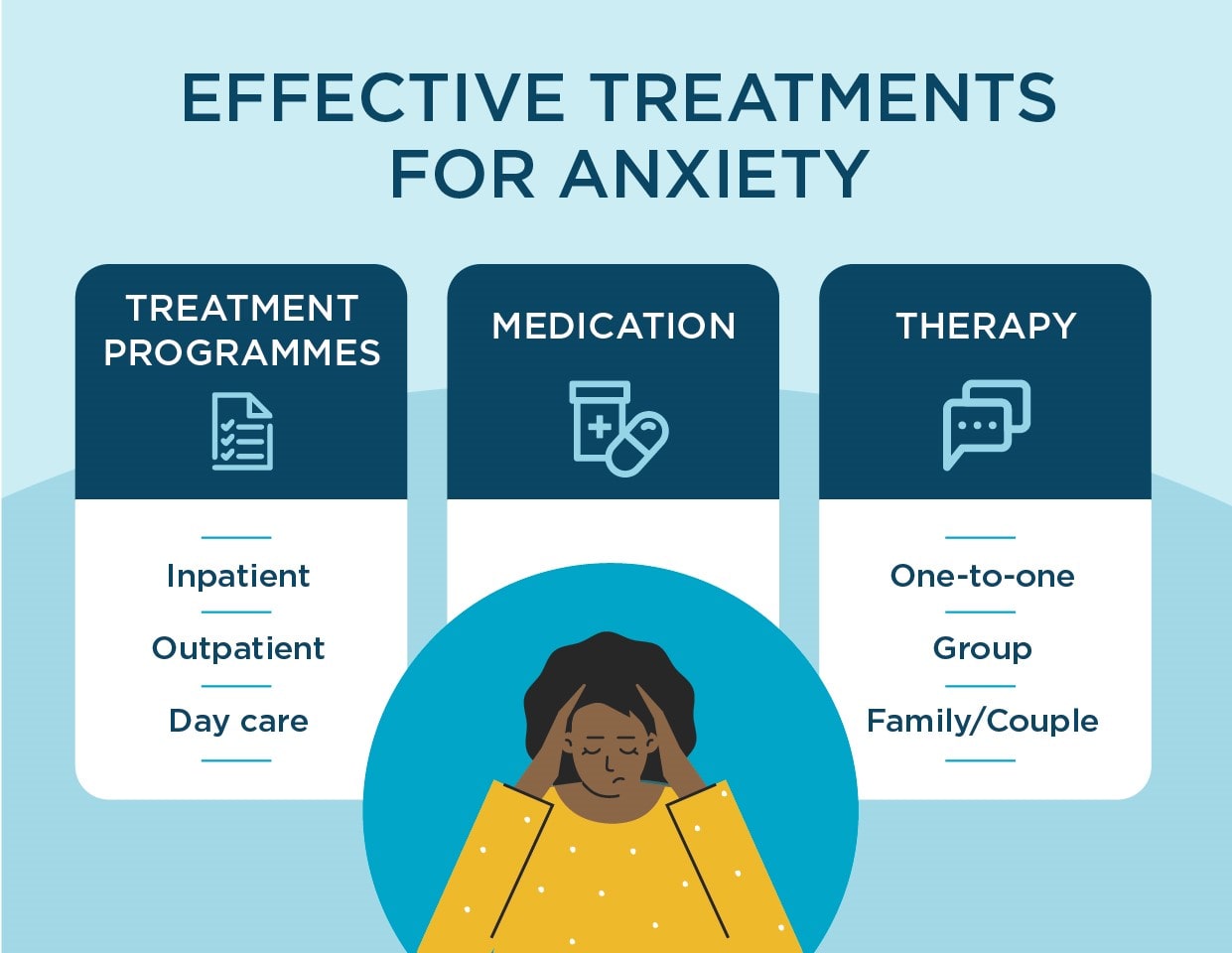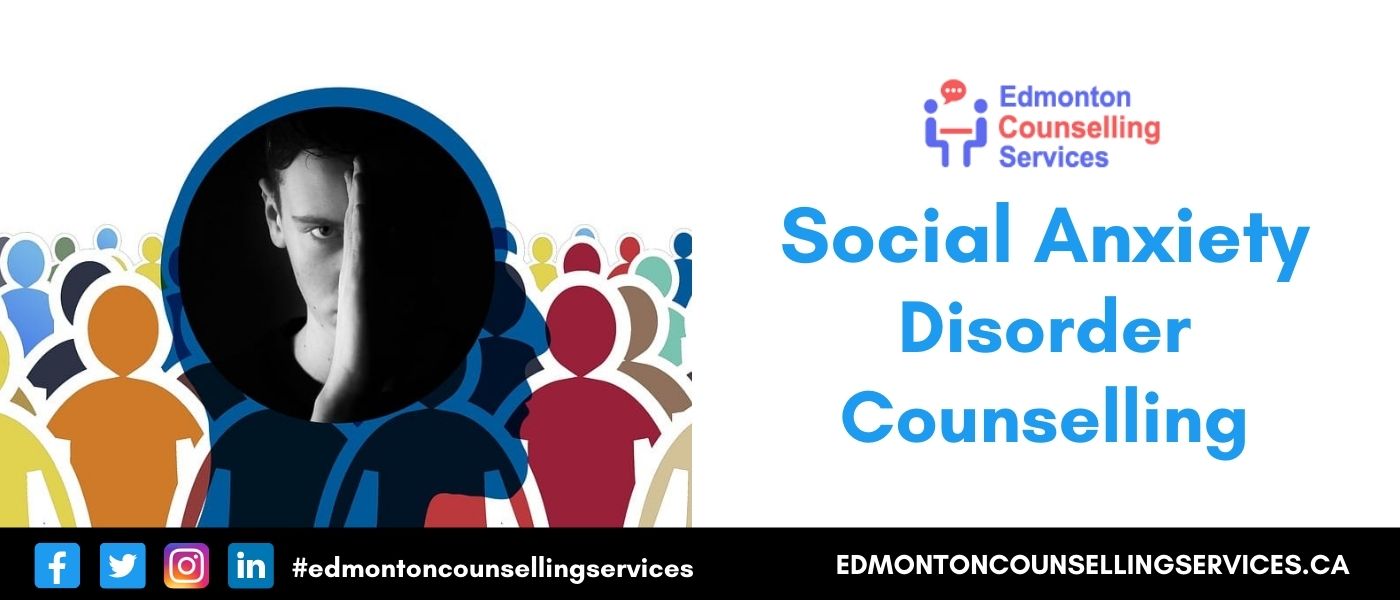Online support accessible today with a licensed therapist for anxiety
Online support accessible today with a licensed therapist for anxiety
Blog Article
Checking Out Different Methods in Counselling for Anxiousness Condition for Lasting Adjustment
When tackling anxiousness problems, it's necessary to check out a variety of counseling techniques. Each approach offers one-of-a-kind understandings and tools to aid you manage your symptoms effectively. You might discover that incorporating methods can generate the best outcomes. Nonetheless, recognizing the subtleties of these techniques is crucial to cultivating enduring change. What if the ideal combination could launch a brand-new degree of psychological well-being for you?
Comprehending Anxiety Problems: A Short Overview
Stress and anxiety problems, which impact millions of individuals worldwide, can substantially affect daily life. You may experience frustrating sensations of fear or stress that appear uncontrollable. These feelings can cause physical signs like an auto racing heart, sweating, or even wooziness. Usual types of anxiety conditions include generalized stress and anxiety disorder, panic attack, and social anxiousness condition. Each has unique signs, yet they all share a propensity to disrupt your routine and relationships.Understanding the root triggers of your stress and anxiety is vital. It may come from genetics, mind chemistry, or life experiences. Identifying your triggers can help you handle your reactions better. It is essential to bear in mind that you're not alone in this battle. Lots of people encounter similar obstacles, and seeking aid is a strong step towards feeling much better. By learning more about anxiousness problems, you're currently on the path to understanding and managing your problem better.
Cognitive-Behavioral Treatment: Testing Negative Thought Patterns

Determining Unfavorable Idea Triggers
Acknowledging the certain triggers behind your unfavorable thoughts can be vital in managing anxiety when you experience minutes of distress. Begin by focusing on circumstances that provoke sensations of concern or fear. Is it a crowded room, a future target date, or a discussion with specific individuals? Take down these circumstances in a journal. This will certainly help you recognize patterns in your reasoning. Notification physical sensations that accompany your unfavorable ideas, like an auto racing heart or rigidity in your breast. By determining these triggers, you acquire understanding right into what's sustaining your anxiousness. Recognizing these links is the initial step in challenging those ideas and eventually regaining control over your psychological feedbacks.

Changing Ideas With Positives
Testing unfavorable idea patterns is a vital action in changing your mindset and lowering stress and anxiety. You may often discover yourself entraped in cycles of insecurity or disastrous thinking. As opposed to allowing these thoughts dictate your sensations, practice replacing them with realistic choices or favorable affirmations. When you believe, "I can not handle this," change it to, "I can manage difficulties one step at a time." This easy adjustment can significantly influence your emotion. Routinely identifying and responding to these unfavorable thoughts assists create a healthier internal dialogue. Bear in mind, it takes some time and effort, yet constantly practicing this technique can bring about enduring adjustment, empowering you to face anxiousness with renewed self-confidence and strength
Building Coping Approaches With Each Other
Replacing adverse thoughts is just the beginning of taking care of stress and anxiety properly. To develop enduring change, you require to build coping strategies that encourage you. Cognitive-Behavioral Therapy (CBT) helps you recognize and challenge those purposeless idea patterns. Together, you and your counselor can discover just how these thoughts influence your feelings and behaviors.Start by creating sensible strategies, like journaling or mindfulness workouts, that allow you to confront anxiousness head-on. When you encounter your anxieties slowly, you'll learn to react in a different way.

Mindfulness and Acceptance-Based Approaches: Growing Present-Moment Understanding
As you browse the intricacies of anxiousness, integrating mindfulness and acceptance-based strategies can considerably enhance your ability to grow present-moment understanding. By concentrating on the below and now, you'll find that you can observe your thoughts and feelings without judgment. This method assists you acknowledge your stress and anxiety without really feeling overwhelmed by it.Engaging in mindfulness workouts, such as deep breathing, body scans, or assisted reflections, enables you to ground on your own in your current experience. Acceptance-based techniques encourage you to welcome your emotions as opposed to fight against them. They shed their power over you.Incorporating these practices into your daily routine can change exactly how you respond to anxiousness when you approve your feelings. You'll establish strength and discover to browse stressful situations with better ease. Ultimately, growing present-moment awareness lays the structure for enduring change, equipping you to lead a more meeting life.
Exposure Therapy: Challenging Concerns Gradually
Exposure treatment helps you confront your concerns in a progressive go to website means, making it less frustrating. You'll discover methods to encounter anxiety-provoking scenarios detailed, while additionally constructing coping techniques to manage your reactions. This method empowers you to take control and minimize anxiousness in time.
Steady Exposure Methods
When encountering anxiety, slowly challenging your anxieties can be a powerful means to regain control. This method, recognized as steady direct exposure, entails gradually subjecting yourself to the situations or things that trigger your stress and anxiety. Beginning with less challenging situations and gradually function your way up to more difficult ones. If you're scared of public speaking, you might start by talking in front of a mirror, then progress to sharing ideas with a friend, and at some point resolve a small group. Each step helps desensitize you to the concern, building your self-confidence gradually. Bear in mind, it's vital to speed on your own and commemorate little success as you move through this process, strengthening your capacity to take care of stress and anxiety properly.
Building Coping Techniques
Structure efficient coping approaches is vital for handling stress and anxiety, specifically as you challenge your concerns gradually. One effective approach is exposure therapy, where you begin by facing your fears in a regulated fashion. YOURURL.com Start with less intimidating situations and gradually work your way up to more difficult scenarios. This gradual exposure aids desensitize you to anxiousness activates, making them much less overwhelming.Incorporate relaxation techniques, such as deep breathing or mindfulness, to relax your mind throughout direct exposure. Track your progression, commemorating little success along the way to improve your self-confidence. Remember, it's all right to take your time; the objective isn't excellence yet consistent improvement. By constructing these techniques, you'll equip on your own to browse anxiety and embrace life more totally.
Psychodynamic Treatment: Uncovering Root Causes of Stress And Anxiety
Psychodynamic treatment explores the unconscious mind, revealing the source of your stress and anxiety - Counseling services for anxiety. By examining your thoughts, sensations, and previous experiences, this method assists you uncover underlying disputes and unsettled issues that may add to your existing stress and anxiety. You'll deal with a specialist to explore youth experiences, relationships, and emotional patterns that shape your feedbacks today.As you acquire understanding right into these deeper layers of your mind, you'll begin to recognize just how previous occasions affect your present habits. This understanding can cause catharsis, allowing you to refine feelings you may have suppressed.Through the healing partnership, you can also recognize defense mechanisms that may have created gradually, providing a clearer path to change. Inevitably, psychodynamic therapy furnishes you with the tools to address your anxiety at its core, advertising lasting improvement in your emotional well-being
Integrative and All Natural Methods: Incorporating Techniques for Greater Efficacy
Incorporating different therapeutic methods can boost your journey toward handling anxiousness better. By incorporating aspects from cognitive-behavioral therapy, mindfulness practices, and holistic methods, you can develop a customized technique that resolves your unique needs. You may make use of cognitive-behavioral strategies to challenge adverse thought patterns while integrating mindfulness exercises to ground yourself in the present moment.Additionally, discovering holistic techniques such as yoga or reflection can promote leisure and lower anxiety signs. This blend enables you to create greater self-awareness and resilience.Experimenting with these varied methods can aid you uncover what resonates most with you. Keep in mind, it's about discovering a harmony that works, as opposed to staying with a solitary approach. This integrative approach not only uses prompt relief yet also promotes lasting abilities for managing stress and anxiety, encouraging you to redeem control over your life.
The Function of Assistance Equipments: Structure Strength With Link
While it could appear that managing anxiousness is a solitary journey, having a solid support system can play a crucial role find in your resilience. Surrounding on your own with understanding pals, family members, or assistance teams produces a secure space where you can honestly share your experiences and sensations. When you get in touch with others, you remind yourself that you're not alone in this struggle.These partnerships supply motivation and can offer practical coping approaches that have functioned for others. It's also a chance to obtain viewpoint; buddies can help you see situations in a different way, reducing sensations of isolation.Moreover, emotional assistance fosters a sense of belonging, which can greatly ease anxiety symptoms. By leaning on your assistance system, you can develop strength and take on obstacles more effectively. Remember, reaching out for assistance signifies stamina, and it can make all the distinction in your trip towards handling stress and anxiety.
Often Asked Inquiries
What Are the Typical Signs And Symptoms of Stress And Anxiety Problems?
You might experience uneasyness, tiredness, difficulty focusing, irritation, muscle mass tension, and rest disturbances. Physical signs and symptoms can consist of rapid heart beat, sweating, and shivering. Identifying these signs early can assist you seek proper assistance and therapy.

The Length Of Time Does Therapy Usually Last for Anxiousness Conditions?
Therapy for stress and anxiety disorders commonly lasts anywhere from a few weeks to numerous months. It truly depends on your individual requirements, development, and the techniques your specialist makes use of to aid you handle your anxiety properly.
Can Drug Be Used Together With Treatment for Anxiety?
Yes, medication can absolutely be used together with treatment for anxiousness. Integrating both methods frequently boosts therapy efficiency, helping you take care of signs while exploring underlying problems with counseling. Constantly consult your doctor for tailored recommendations.
Exist Self-Help Techniques for Taking Care Of Anxiousness?
Yes, there are a number of self-help techniques for managing anxiousness. You can practice mindfulness, participate in routine workout, preserve a well balanced diet plan, establish a regular, and utilize deep breathing strategies to help decrease anxiousness symptoms effectively.
How Do I Know if I Need Expert Aid for Stress And Anxiety?
You must consider seeking specialist aid for anxiousness if it interrupts day-to-day life, causes significant distress, or if self-help methods aren't working. Count on your reactions; reaching out can bring about much better coping skills and assistance. Common kinds of stress and anxiety disorders include generalised anxiousness problem, panic disorder, and social stress and anxiety condition. When you come across minutes of distress, identifying the particular triggers behind your negative thoughts can be important in handling anxiousness. Changing unfavorable ideas is only the beginning of taking care of stress and anxiety efficiently. By examining your ideas, sensations, and past experiences, this method helps you reveal underlying disputes and unsettled concerns that may contribute to your current stress and anxiety. It's also a chance to acquire viewpoint; buddies can assist you see scenarios differently, minimizing feelings of isolation (Counseling services for anxiety).Moreover, emotional assistance cultivates a sense of belonging, which can greatly minimize anxiousness signs and symptoms
Report this page